014年12月27日 星期六
upn-world news-health-12-27-07-Ebola Orphans Challenge West African Culture Print Comment Share:
x
News / Africa
Ebola Orphans Challenge West African Culture
Olematu, 3, center, and Ibrahim, 4, talk on toy phones in a village near Kenema, Sierra Leone. Their 15-year-old sister, Betty, has taken charge after their mother’s death from Ebola. Betty survived an Ebola infection. (© UNICEF / Bindra)
December 26, 2014 10:50 AM
The image has haunted Andrew Brooks for months, but UNICEF’s regional child protection specialist for West Africa described it as if it were yesterday.
An ambulance pulls up to an Ebola treatment unit, and attendants rush a dying woman into an Ebola treatment center. Amid the frenzy, a small, bewildered boy comes into focus.
"Before you even get to find out where the child comes from, the mother dies. The child is left all alone. Suddenly, you have a little boy on your hands," Brooks recalled last week from his base in Dakar, Senegal. He was struck by the situation’s gravity: Decisions made that day could affect the child for the rest of his life.
This particular child happened to be in Monrovia, Liberia, but the scene has played out repeatedly over the past year elsewhere in that country and in Guinea and Sierra Leone. UNICEF, the United Nations Children’s Fund, estimates at least 10,000 youngsters have lost at least one parent or primary caregiver to the current Ebola outbreak that, as of the World Health Organization’s last count, has killed at least 7,588.
The vast majority of children, defined by UNICEF as younger than 18, find homes with relatives or other community members, Brooks and several other regional child welfare experts emphasized.
Testing extended family ties
But a year of battling Ebola — with its devastating sickness, attendant quarantines, disrupted trade and diminished earning power — has strained many households’ ability to absorb more dependents. Add in the very real possibility that a child might carry the dreaded virus, and doors close.
"Families in Africa in a normal situation would take children in two seconds," said Sister Barbara Brillant, a Franciscan Missionary of Mary who leads Liberia’s National Catholic Health Council and its Ebola response. "But right now they’re not. I want to believe the families will take them once the fear has died down or a vaccine is available."
Hundreds of children wind up, at least temporarily, in institutions or group homes where they’re quarantined for up to 21 days while awaiting Ebola testing results or the onset of symptoms. Brooks characterized these settings as "an emergency intervention," noting that workers in the UNICEF-led family tracing and reunification network start trying to identifying kinship or other placements almost immediately.
Other children are less fortunate, winding up begging on the street or exploited for money, labor or sex, the experts acknowledged.
The little boy Brooks saw in Monrovia ultimately had a better outcome, but his case illustrated the challenges involving orphans. Using his mother’s name and the two phone numbers she carried, aid workers eventually were able to track down an aunt who embraced the boy. But first, after he’d tested negative for the virus, he was placed with a welcoming foster mother — an Ebola survivor — who nonetheless couldn’t bring him home. "The community refused to have the boy come," Brooks said.
Countries differ
Circumstances vary not only by child but by country, according to UNICEF representatives.
In Guinea, where the current outbreak began a year ago in the southeastern rain forest, few children apparently have been left homeless. "Existing kinship ties seem to have absorbed children who have lost their parents," Christophe Boulierac, a Geneva-based UNICEF spokesman, told VOA after a recent 10-day tour of the country.
In Sierra Leone and Liberia, where "the epicenter of the disease is in the capitals," more orphans require institutionalized care, Brooks said. He added that years of people flowing to urban centers for employment can weaken familial connections to native communities.
Carolyn Miles (foreground), CEO of Save the Children, listens to orphans at a Liberian government-run facility in Unification town, Oct. 3, 2014.
When kinship care is unavailable, aid workers still try to keep youngsters in or near their home communities.
"We don’t want to move them too far," Brooks said. "We really have to recognize and support the resilience of communities who’ve faced hardships. These countries have gone through civil wars, they’ve come through them. They’re not abandoning their children, with the exception of a few."
Care centers as ‘last resort’
Sierra Leone has seven care and observation centers, with 102 young charges among them as of last week, Brooks said. The institutions can hold more, but "we want to ensure that this is understood as a last resort."
Liberia has established an interim care center in Monrovia, with 33 children registered as of last week. Brooks said three more centers are planned in other parts of the country.
Also in Liberia, the Catholic Church is helping care for "close to 500" orphans, said Brillant, the Franciscan nun. For instance, Consolata Sisters living in Dolo Town – a community about 50 miles east of Monrovia in which more than 100 people died of Ebola – are leading efforts to feed, clothe and otherwise support some 260 orphans living with other residents, she said.
Liberia’s orphans also are receiving support from the Bernardine Franciscan Sisters, a U.S.-based order that just sent a shipping container of food, a spokeswoman said.
"As churches go, most end up taking care of this type of issue, which is what we should be doing," said Brillant, a native of the northeastern U.S. state of Maine who has worked in Liberia for 37 years.
In many centers, including those affiliated with UNICEF, Ebola survivors serve as caregivers, Brooks said.
A survivor has a high level of immunity from infection, he said. Beyond that medical benefit, the survivor understands the isolated or sick child’s plight, he added. "There’s emotional rapport and identification of the experience. There’s also the hope for a child to see someone who’d made it through. It’s an encouragement."
Supporting caregivers
In all three countries, UNICEF, WHO and some other international groups provide incentive packages to assist households taking in youngsters left untethered by Ebola, Brooks said. The aid includes clothes, shoes and time-limited food and cash support for expenses, such as school fees. Follow-up by a social worker aims to help the child adjust to loss and to a new family.
The support system itself is strained and could use help, Brooks added.
"As we invest in targeted support for vulnerable children," he continued, governments, NGO partners and communities should "also invest in the social welfare system. … Let’s strengthen and reinforce our support for children where they are."
Potential for exploitation
While kinship placements usually are desirable, they can carry risk for the children as well as for the households and communities taking them in.
Lucy Steinitz, a protective services adviser for Catholic Relief Services in Sierra Leone, told VOA in an email that aid workers "have heard of many stories where [incentives] were not used to benefit the Ebola-affected child or children. And so children are forced into hard labor, early marriages, or they run away, trading one set of terrible problems for another."
In Bo, Sierra Leone’s second-largest city, children wound up on the street in 10 out of 16 attempted family reunifications, Steinitz said. At the St. George interim care center in Freetown, only two reunifications were completed among 45 children during an eight-week period.
There’s "enormous pressure to trace family members and effect a kinship placement … but it is often very difficult," she said, explaining that relatives face economic pressures and fear the disease’s stigma – or simply may be hard to trace.
UNICEF’s Brooks acknowledged those concerns as "very real."
"It speaks to the need for extremely close follow-up to what we’re doing," he said of child placements. Despite the crisis, "we can’t let kids go to anyone who will have them. We can’t let children become a commodity."
ffffffffffffffffffffffddddddddddddddddddddddddddddddddddddddddddddddddddddddddddddddddddddddd
Visa Stops Supporting Bank Cards in Crimea
upn-world news-economy-12-27-06-Visa Stops Supporting Bank Cards in Crimea Print Comment Share:
News / Europe
Visa Stops Supporting Bank Cards in Crimea
December 26, 2014 1:28 PM
MOSCOW—
International credit and debit card company Visa Inc. said on Friday it could no longer support bank cards being used in Crimea, following U.S. sanctions imposed earlier this month.
The United States last Friday prohibited U.S.-registered companies from investing in Crimea or providing services to firms operating there, among sanctions imposed over Russia's annexation of the peninsula from Ukraine.
Visa said in a statement that the sanctions meant it could not offer Visa-branded products and services to Crimea.
"We can no longer support card issuing and merchant/ATM acquiring services in Crimea," it said.
A spokeswoman for Visa's competitor MasterCard was unable to immediately confirm whether it had also stopped serving bank cards in Crimea.
upn-world news-middle east-12-27-05-fReport: Syrian Airstrikes Kill Dozens of Civilians Print Comment (2) Share:
News / Middle East
Report: Syrian Airstrikes Kill Dozens of Civilians
A man inspects a hole in the ground after what activists said was an airstrike by forces loyal to Syria's President Bashar al-Assad in Khan Sheikhoun, northern Idlib province, Dec. 26, 2014.
Last updated on: December 26, 2014 6:00 PM
A group monitoring the conflict in Syria said Friday that government airstrikes had killed at least 37 civilians in an area controlled by Islamic State fighters.
The Britain-based Syrian Observatory for Human Rights said seven children and two women were among those killed in the attack on Al-Bab and the nearby town of Qabaseen. The area, northeast of Aleppo, has been the target of repeated government bombings.
U.S. and partner nation military forces on Friday conducted four airstrikes in Syria against Islamic State targets near Kobani.
Separately, five coalition airstrikes against the Islamic State militants took place in Iraq, near Al Asad, Al Qaim, Fallujah and Mosul.
On Thursday, coalition forces conducted 15 airstrikes in Syria against Islamic State targets near Kobani, Al Hasakah and Raqqa. In Iraq, 15 strikes occurred near Al Qaim, Al Asad, Mosul, Sinjar, Bayji, Kirkuk and Tal Afar.
Earlier this week, Islamic State militants captured a Jordanian pilot whose coalition fighter jet went down near the Syrian town of Raqqa.
The U.S. and Jordanian militaries have acknowledged that the plane crashed but have disputed Islamic State claims that the militants brought down the aircraft.
Separately, a member of IS, Abu Jandal, has dared the head of the Indonesian Armed Forces, General Moeldoko, to join the coalition forces in their fight against the Islamic State in Iraq and Syria.
In a four-minute video released Friday, Jandal also challenged the Indonesian police force to fight on the battlefield.
Jandal said he was returning to Indonesia to fight the armed forces and police.
Defense Minister Ryamizard Ryacudu said the Indonesian government was preparing various measures in anticipation of IS threats, but he did not elaborate.
Some information for this report came from AFP and Reuters.
upn-africa news-v3oa-12-27-04-News / Africa Death Toll in Somalia Base Attack Rises Print Comment (2) Share: FILE - Ugandan peacekeeping troops stand during a ceremony at Mogadishu airport in Somalia. FILE - Ugandan peacekeeping troops stand during a ceremony at Mogadishu airport in Somalia. Pin It RELATED ARTICLES AU: Al-Shabab Attack in Mogadishu Claims 9 Somali Parliament Approves New PM For Somalis, 2014 Marked by Political Instability Within Government James Butty Last updated on: December 26, 2014 9:38 PM The African Union says it has killed the last three of eight al-Shabab militants who attacked its base in the Somali capital of Mogadishu, bringing the death toll to 14. A spokesman for the AU mission in Somalia (AMISOM) told VOA that five AU peacekeepers and a foreign contractor had died in Thursday's raid on one of the city's most fortified bases. Colonel Ali Aden Hamoud said an investigation was under way to find out how militants dressed in Somali uniforms infiltrated the Halane facility near Mogadishu International Airport, which is also home to a U.N. office and several embassies. "From our coordination, there will be some change, for sure," he said. The identity and nationality of the foreign contractor have not been released. AMISOM said Thursday that it had regained control of the base and had "restored normalcy" after rebels ambushed the compound around midday, trying to gain access to what the peacekeeping mission called critical infrastructure. In claiming responsibility for the attack, al-Shabab said the raid targeted a Christmas party at the base. Resolve from U.N. U.N. Secretary-General Ban Ki-moon on Friday condemned the attack and reaffirmed the United Nations' resolve to support the Somali government. The U.N. Security Council also deplored the raid and said that any acts of terrorism are unjustifiable. AU and Somali government forces have pushed al-Shabab out of most Somali cities and towns. The al-Qaida-linked group, however, still launches periodic raids and suicide attacks on AU and government targets. Al-Shabab fighters have killed several Somali lawmakers this year and mounted two major attacks on the Somali presidential palace. Despite the magnitude of the latest attack, Ambassador Maman Sidikou, special representative of the chairperson of the African Union Commission for Somalia, said the continental body remained committed to supporting the Somali people and government in rebuilding their country. “Today, I’ve been on the phone with generals and officers, and I told them many people will be unhappy with us in coming days simply because you’re going to strictly enforce the regulations so that there is no mistake of this sort," he said, emphasizing the need to fully enforce all security measures to ensure that such an attack would not happen again. "This means we have to agree with our partners, the U.N. and other partners, on how the camps are going to be monitored, who can enter and who cannot enter,” Sidikou added before expressing grief about the losses. “We lost five of our colleagues, five young soldiers to this attack by al-Shabab on our camp. These young men have been [in] Somalia, some of them one year, some a few months, sacrificing to ensure that this part of Africa is free and stable,” he said. Sidikou withheld names and nationalities of the deceased, saying the mission wanted to first notify their families. Response is paramount When asked how the militants had infiltrated the base, he said the fighters had disguised themselves with Somali army uniforms, but quickly added that how they entered the base was less important than what would be done about it. "This is a wake-up call for all of us, precisely because we’re working with Somalis [who] sometimes use tactics such as pretending they are [the] soldiers with whom we work to build their capacity.” He also said al-Shabab, which controlled most of Mogadishu before recently losing territory, is desperate to try any methods to show it is still relevant. “So we have to adapt very, very quickly to the kind of warfare they’re imposing on us right now with the support of Somali institutions," Sikikou said. "If not, what will happen is instability will be the name of the game.” Butty interview with Amb Maman Sidikou
fffffffffffffffffffff
Last updated on: December 26, 2014 9:38 PM
The African Union says it has killed the last three of eight al-Shabab militants who attacked its base in the Somali capital of Mogadishu, bringing the death toll to 14.
A spokesman for the AU mission in Somalia (AMISOM) told VOA that five AU peacekeepers and a foreign contractor had died in Thursday's raid on one of the city's most fortified bases.
Colonel Ali Aden Hamoud said an investigation was under way to find out how militants dressed in Somali uniforms infiltrated the Halane facility near Mogadishu International Airport, which is also home to a U.N. office and several embassies.
"From our coordination, there will be some change, for sure," he said.
The identity and nationality of the foreign contractor have not been released.
AMISOM said Thursday that it had regained control of the base and had "restored normalcy" after rebels ambushed the compound around midday, trying to gain access to what the peacekeeping mission called critical infrastructure.
In claiming responsibility for the attack, al-Shabab said the raid targeted a Christmas party at the base.
Resolve from U.N.
U.N. Secretary-General Ban Ki-moon on Friday condemned the attack and reaffirmed the United Nations' resolve to support the Somali government.
The U.N. Security Council also deplored the raid and said that any acts of terrorism are unjustifiable.
AU and Somali government forces have pushed al-Shabab out of most Somali cities and towns. The al-Qaida-linked group, however, still launches periodic raids and suicide attacks on AU and government targets.
Al-Shabab fighters have killed several Somali lawmakers this year and mounted two major attacks on the Somali presidential palace.
Despite the magnitude of the latest attack, Ambassador Maman Sidikou, special representative of the chairperson of the African Union Commission for Somalia, said the continental body remained committed to supporting the Somali people and government in rebuilding their country.
“Today, I’ve been on the phone with generals and officers, and I told them many people will be unhappy with us in coming days simply because you’re going to strictly enforce the regulations so that there is no mistake of this sort," he said, emphasizing the need to fully enforce all security measures to ensure that such an attack would not happen again.
"This means we have to agree with our partners, the U.N. and other partners, on how the camps are going to be monitored, who can enter and who cannot enter,” Sidikou added before expressing grief about the losses.
“We lost five of our colleagues, five young soldiers to this attack by al-Shabab on our camp. These young men have been [in] Somalia, some of them one year, some a few months, sacrificing to ensure that this part of Africa is free and stable,” he said.
Sidikou withheld names and nationalities of the deceased, saying the mission wanted to first notify their families.
Response is paramount
When asked how the militants had infiltrated the base, he said the fighters had disguised themselves with Somali army uniforms, but quickly added that how they entered the base was less important than what would be done about it.
"This is a wake-up call for all of us, precisely because we’re working with Somalis [who] sometimes use tactics such as pretending they are [the] soldiers with whom we work to build their capacity.”
He also said al-Shabab, which controlled most of Mogadishu before recently losing territory, is desperate to try any methods to show it is still relevant.
“So we have to adapt very, very quickly to the kind of warfare they’re imposing on us right now with the support of Somali institutions," Sikikou said. "If not, what will happen is instability will be the name of the game.”
Butty interview with Amb Maman Sidikou
upn-asia news--vwoa-12-27-03-ffffffffffffffNews / Asia Drone and Pakistani Airstrikes Kill 30 in Pakistan Print Comment (5) Share: North Waziristan map North Waziristan map Pin It RELATED ARTICLES Pakistan Says US Drone Killed 5 Militants in Northern Waziristan VOA News Last updated on: December 26, 2014 9:47 PM Pakistani fighter planes and suspected U.S. drone strikes killed at least 30 Islamist fighters Friday, including militant commanders, in the remote North Waziristan region. The Pakistani airstrikes late Friday targeted compounds of Taliban and Uzbek militants near the Afghan border with what the army called "very effective and precise aerial strikes" and killed at least 23 militants. Earlier Friday Pakistani intelligence officials reported that two US drones fired missiles at suspected militant hideouts in the mountainous Shawal region of North Waziristan. That attack left at least seven fighters dead. The attacks in North Waziristan come as Pakistan ramped up its anti-terror strategy in the wake of a December 16 Pakistani Taliban attack on an army-run school in Peshawar that killed 150 people, most of them children. The massacre of 134 children and 16 school staff prompted Prime Minister Nawaz Sharif to reinstate the death penalty just two days after the attack. Authorities have since hanged six “hard-core terrorists” convicted of previous terrorism charges, and plans are in place to execute hundreds more. On Friday, U.N. Secretary-General Ban Ki-moon spoke by phone with Sharif. A U.N. statement said Ban urged the Islamabad government to stop the executions and reimpose the country's moratorium on the death penalty. The two also discussed the rule of law and the need for an independent Pakistani judiciary. Drone strikes are largely unpopular in Pakistan, where many consider them a violation of the country's sovereignty. But the U.S. insists these attacks are effective in eliminating militants in areas inaccessible to the Pakistani military. Also Friday, officials said security forces had killed an alleged facilitator of the Peshawar school attack. The head of the police in the Khyber tribal region said security forces, acting on intelligence information, conducted a raid late Thursday night and fought a gunbattle with the militant commander known as Saddam and suspected accomplices. The man was killed in the hourlong shootout, while six alleged accomplices were injured and arrested. They were being interrogated. Police said Saddam helped plan the school attack and was also involved in assaults on health workers giving polio vaccinations in the tribal areas. Print Comment (5) Share:
fff
N
Last updated on: December 26, 2014 9:47 PM
Pakistani fighter planes and suspected U.S. drone strikes killed at least 30 Islamist fighters Friday, including militant commanders, in the remote North Waziristan region.
The Pakistani airstrikes late Friday targeted compounds of Taliban and Uzbek militants near the Afghan border with what the army called "very effective and precise aerial strikes" and killed at least 23 militants.
Earlier Friday Pakistani intelligence officials reported that two US drones fired missiles at suspected militant hideouts in the mountainous Shawal region of North Waziristan. That attack left at least seven fighters dead.
The attacks in North Waziristan come as Pakistan ramped up its anti-terror strategy in the wake of a December 16 Pakistani Taliban attack on an army-run school in Peshawar that killed 150 people, most of them children.
The massacre of 134 children and 16 school staff prompted Prime Minister Nawaz Sharif to reinstate the death penalty just two days after the attack. Authorities have since hanged six “hard-core terrorists” convicted of previous terrorism charges, and plans are in place to execute hundreds more.
On Friday, U.N. Secretary-General Ban Ki-moon spoke by phone with Sharif. A U.N. statement said Ban urged the Islamabad government to stop the executions and reimpose the country's moratorium on the death penalty.
The two also discussed the rule of law and the need for an independent Pakistani judiciary.
Drone strikes are largely unpopular in Pakistan, where many consider them a violation of the country's sovereignty. But the U.S. insists these attacks are effective in eliminating militants in areas inaccessible to the Pakistani military.
Also Friday, officials said security forces had killed an alleged facilitator of the Peshawar school attack.
The head of the police in the Khyber tribal region said security forces, acting on intelligence information, conducted a raid late Thursday night and fought a gunbattle with the militant commander known as Saddam and suspected accomplices.
The man was killed in the hourlong shootout, while six alleged accomplices were injured and arrested. They were being interrogated.
Police said Saddam helped plan the school attack and was also involved in assaults on health workers giving polio vaccinations in the tribal areas.
全站熱搜
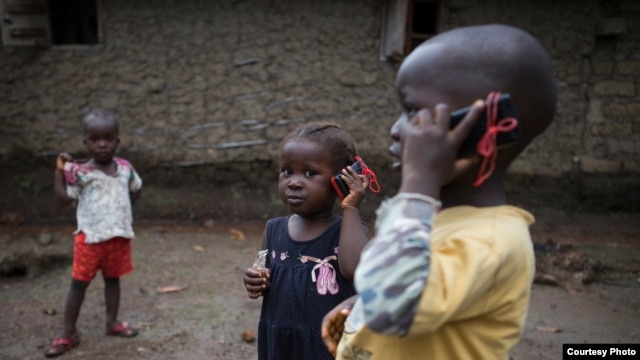

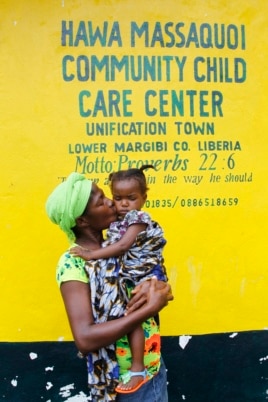
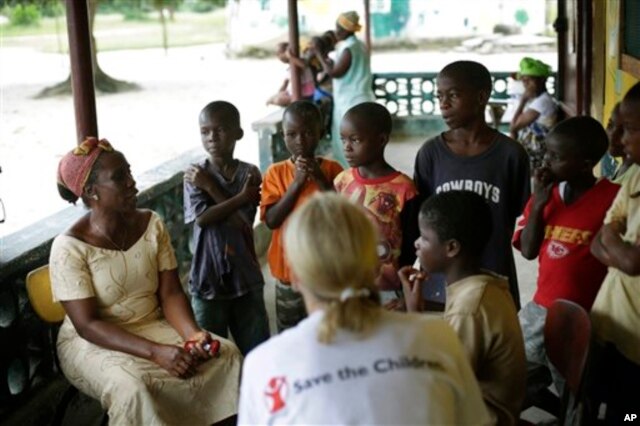

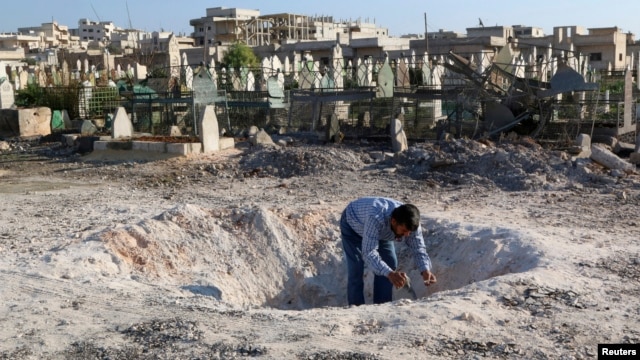
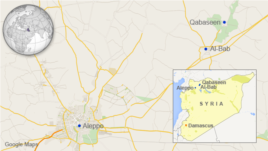
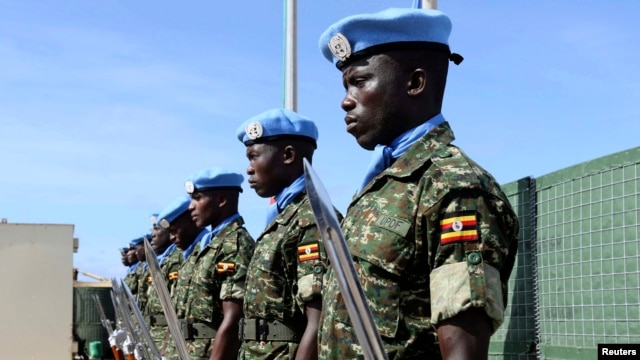
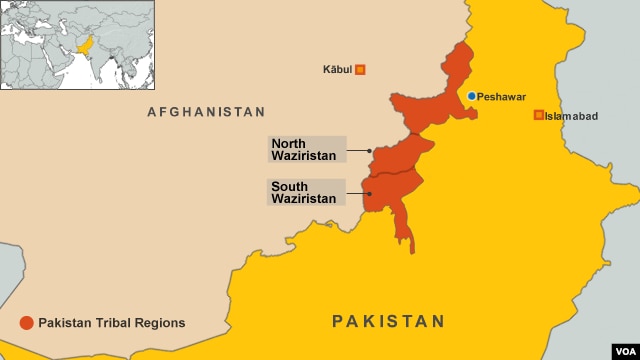


 留言列表
留言列表
